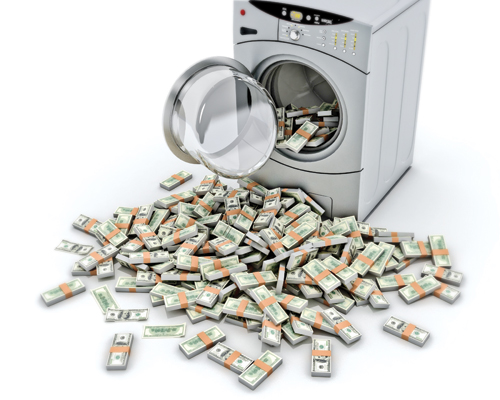The FCA is investigating the role of British banks in the alleged processing of hundreds of millions of pounds for a Russian money laundering scheme dubbed “the Laundromat” the growing scrutiny is weighing whether to launch a full investigation.

Russian money laundering scheme “Laundromat”
Simon Kirby, the City minister, was forced to answer a question in parliament about the latest revelations in the Guardian newspaper, the Financial Conduct Authority said: “Clearly these are serious allegations and we will investigate any evidence that we receive.”
The FCA has been poring over information provided to it several weeks ago by the Guardian, which showed that British-based banks had processed 1,920 transactions amounting to almost $740m on behalf of companies set up as part of the Laundromat scheme, which ran from 2010 to 2014.
HSBC was by far the biggest conduit for the payments, of which it handled $545.3m, mostly through its Hong Kong subsidiary. Royal Bank of Scotland handled $113.1m and its Coutts private bank in Switzerland handled $32.8m – according to the FT.
In response to a question from the opposition Labour party in the House of Commons on Tuesday, Mr Kirby said: “The Financial Conduct Authority and the National Crime Agency . . . will investigate closely whether recent information from the Guardian newspaper regarding money laundering from Russia, or indeed any other media source, would allow the progression of an investigation.
“What is important is that if these allegations are correct, if they present any new information, that both the NCA and the FCA act on it appropriately.”
However, John McDonnell, the shadow chancellor, accused the minister of not realising “the immense gravity of the situation we are facing”. He called for assurances that “there will be the potential opening up of criminal proceedings to break up what is effectively a criminal network”.
The NCA, the UK’s lead law enforcement agency for cross-border economic crime, said it “remains willing to consider any formal request for assistance from the Moldovan authorities in connection with their investigation, and will consider whether information provided by the Guardian or other media sources would allow the progression of an investigation”.
The Laundromat scheme — run by Russian criminal gangs — involved some 20,000 banking transactions totalling at least $20bn on behalf of wealthy Russians seeking to move money out of the country, according to the Guardian.
Many of these payments involved shell companies in countries including the UK that had fake loans guaranteed by Russian companies, which allowed cash to be siphoned through Latvian and Moldovan banks into the EU and then around the world. Allegations about the scheme, which is being investigated by Latvian and Moldovan police, were first published by the Organised Crime and Corruption Reporting Project in 2014.
People familiar with some of the western banks involved say they filed “suspicious activity reports” to law enforcement agencies about the transactions but were powerless to stop them as the Russian companies were not their clients.
The latest bank to be sucked into the scandal is Deutsche Bank, which processed transactions adding up to $24m for companies involved in the Laundromat scheme, according to a report in the Süddeutsche Zeitung newspaper on Tuesday night.
Germany’s biggest bank was, along with its main domestic rival Commerzbank, one of the last lenders to have a correspondent banking relationship to handle US dollar payments for Latvia’s Trasta Komercsbanka — which it ended in 2015, one year before the Latvian bank was shut down, according to the Guardian.



Leave a Reply
You must be logged in to post a comment.